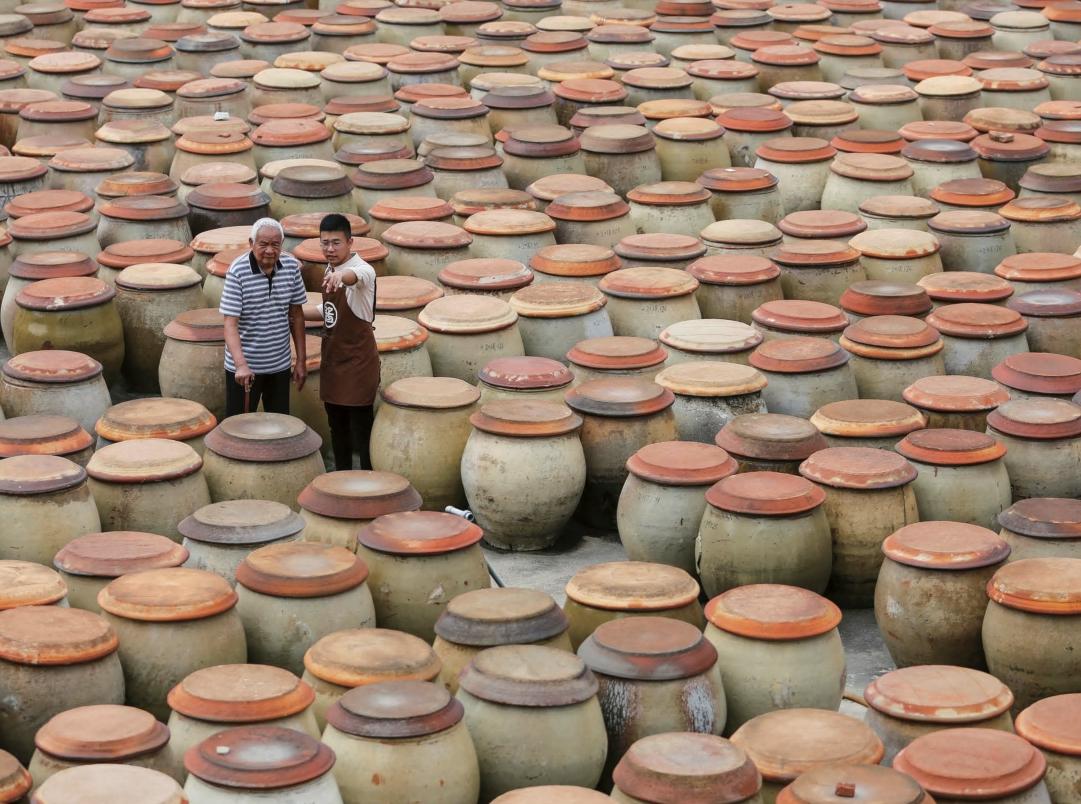THE FLAVOR OF HERITAGE
By Li Qing
In his workshop, redolent with the pungent smell of soy sauce stored in more than 3,000 jars, Wu Huaqing checked the production of the condiment, a family business he learned at his grandfathers knees.
Since his graduation five years ago, the 28-year-old began to learn the ropes of the family business in Jinjiang, a county-level city in Quanzhou, southeast Chinas Fujian Province.
His grandfather Wu Zongzhou founded the workshop after working in a soy sauce factory for 30 years and gathering extensive knowledge of the traditional production process.
When he retired and handed over the reins of the business, Wu Zongzhou summarized the long and complicated process for the benefit of his grandson. The trick is to ensure that the soybeans in the jars get ample sunshine in the morning and can absorb dew at night, which helps the microorganisms present in the air ferment them.

Before they are put into the jar, the soybeans have to be selected carefully, washed thoroughly and then steamed. The whole process takes at least one year.
“My grandfather is a craftsman with principles,” Wu Huaqing said proudly, “For instance, he never allowed a bottle of sauce that had not undergone the entire process to be sold, saying it would ruin the workshops reputation.” Now Wu Huaqing is trying to follow his grandfathers principles.
To the traditional approach inherited from the patriarch, Wu Huaqing has added innovation. In the past, the temperature and humidity inside the workshop were adjusted according to his grandfathers instinct. Now he is keeping records and using the data to make adjustments. He has also upgraded the equipment to improve production efficiency and product quality.
In addition, Wu Huaqing is expanding his business by utilizing e-commerce platforms. Inspired by the concept of cultural creativity, he is using stories about the workshop, featuring the beans, his grandfather and himself, in the packaging and in videos for promotion. The approach, creating public awareness of an old brand and its history, has given new life to the sauce, which is now seen through the prism of a proud tradition and heritage.
Today, the soy sauce made in Wu Huaqings workshop has gone way beyond his village, stacked on the shelves of stores in countries participating in the 21st-Century Maritime Silk Road Initiative like Singapore and the Philippines.



